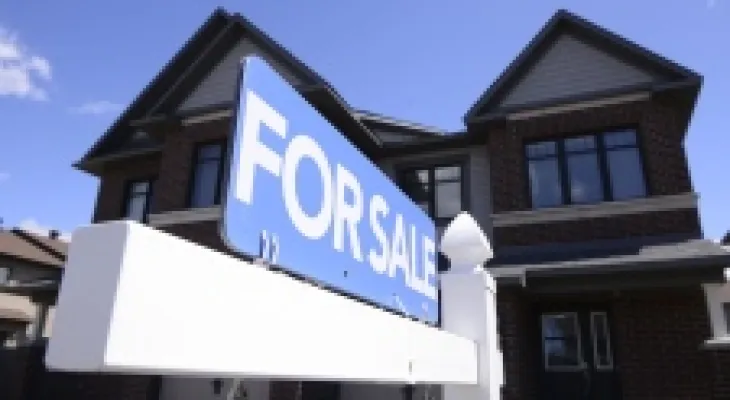Search here
Newspaper
Search here

Arab Canada News
News

Published: October 16, 2023
As more and more homeowners face refinancing their mortgages at surprisingly higher interest rates, some are confronting the frightening prospect of having to sell a home they can no longer afford.
But experts say that while this option may be on the table, there are steps financially stressed homeowners can take before putting a "for sale" sign in their front yard.
Becky Western McFadden, a financial training director at Credit Canada, said, "We have to acknowledge upfront that selling the home may ultimately be the only option for some homeowners."
However, she said homeowners should start by reworking their household spending, by looking at their incoming and outgoing funds, including recurring expenses for home maintenance, car repairs, and medical bills.
The next step would be to jot down all potential ideas on paper to find ways to diversify their income sources. This could mean getting a second job, asking for a raise at work, or renting out a room in their home, as suggested by Western McFadden.
She cautioned: "Be realistic."
She also warned that in tough cases, drastic measures may be needed to cut expenses.
"This is not the time to focus on cutting coupons. You want to make sure you're making some big changes, and they need to be sustainable."
She suggested that homeowners put any extra cash into their current mortgage by making a lump-sum payment before renewing at a higher rate to help manage the expected higher monthly payment.
Homeowners can also seek help from a financial advisor or certified financial planner to gauge what a sustainable, affordable lifestyle could look like, according to Tony Salgado, founder of AMS Wealth.
He said that as mortgage renewal approaches, do not assume the first offer the lender provides is the best rate.
He added, "If you have the opportunity to work with a mortgage broker, make sure to shop around. Because one in a hundred or half of a hundred dollars in savings can be significant in today's environment."
Understanding mortgage amortization and choosing the best option between fixed and variable rates and finding the best price offer can also help ease the burden of higher rates when renewing.
Current mortgage rates at traditional banks exceed 5 percent, and rates with alternative lenders can be higher. This compares to mortgage rates below three percent during the pandemic when the Bank of Canada's benchmark rate was very low.
Salgado noted that there is a common belief that the rapid rise in mortgage rates only affects low- or middle-income households.
He said, "It's a bit misleading. Whether you're low-income or high-income, as long as you have a mortgage, these rates impact you."
However, Salgado said a higher-income person may be better able to adapt to higher borrowing costs by shifting among assets or capital or retirement savings.
"When we work with low-income people who have higher mortgages, they may not come with a lot of other investment accounts that you can adjust or move to help offset those costs."
Salgado confirmed that some younger homeowners are turning to their parents for help keeping up with higher mortgage payments, as a type of advance on expected inheritance.
He added, "We're seeing that happen in our community. Many older generations want to see the fruits of their hard work benefit the family while they're still alive."
However, if all these options are exhausted, it may mean it’s time to move on.
Western McFadden said, "The mortgage is usually the last thing someone would let go of. They’ve likely maxed out their credit cards and lines of credit, and at that point, they see no other alternatives."
She added, "You then want to take action," which could include selling, foreclosure, or handing over the home.
Western McFadden suggested homeowners consider choosing to sell rather than foreclose to avoid selling the property for less than market value and incurring costs that may arise in the case of surrender.
As rising interest rates negatively impact housing market activity, it may make it harder for homeowners to get the price they expect from sales.
Speaking with a licensed insolvency trustee could also be an option to help relieve the pressure of selling the home and managing debt.
She also warned that selling a property does not necessarily mean the end of a homeowner's responsibilities. Homeowners still need to cover remaining utility expenses and homeowner's insurance until ownership is transferred.
"It's not a walk in the park."
If the home is sold at a loss, Western McFadden said the homeowner is responsible for covering the difference – likely coming from other investments or reviewing other options like a consumer proposal or bankruptcy.
After selling the home comes the most obvious question: "Then what?"
Western McFadden said people who sold their homes have to face the housing market again – with rising interest rates, drastically increasing rental prices, and a general affordability crisis.
She added, "There's a belief that interest rates will come down again. But that may not happen for years."
"Anyone renewing their mortgage in the next year or two will definitely feel this pinch."
Comments